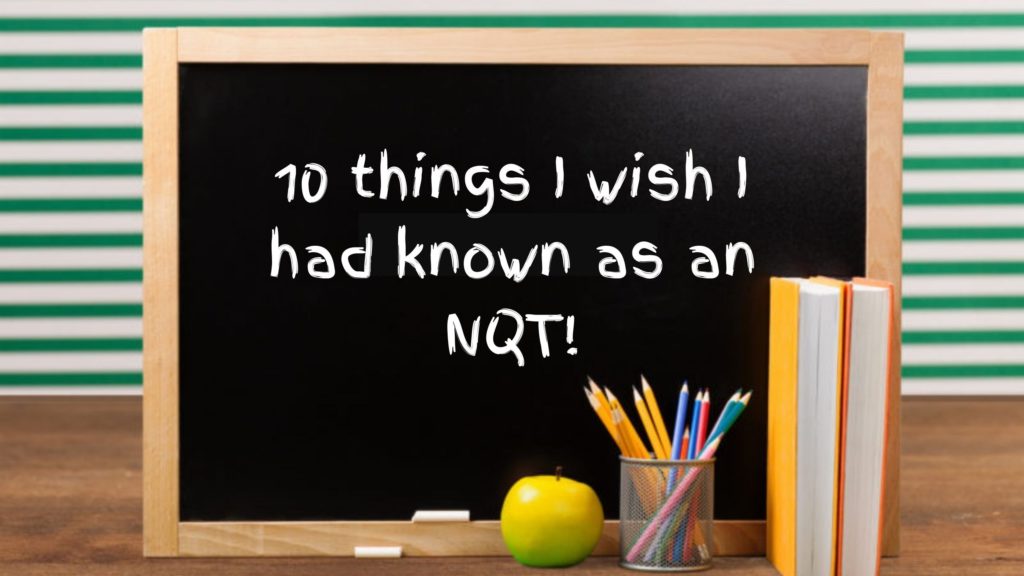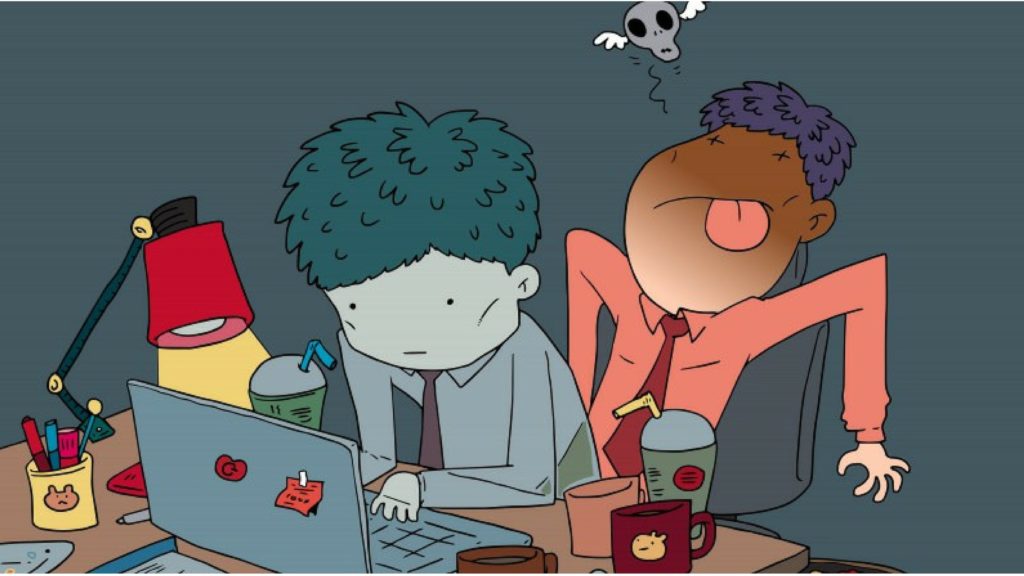The Must-Have NQT 101!

On your first day, get into school early. Check everything is ready and check emails. Write down the order of the day with times and confirm assembly times and any last minute changes. It really helps as it allows you to check the pace of things you want to achieve and be in control.
Start by collecting the register and ensure you are familiar with the dinner register with office staff. Also ask them if you have any new children coming in or any that have left. New children will need your attention!
Note down in a confidential place any child protection issues that senior leaders may have shared with you that may have arisen with any pupils in your class. Remember to anonymise children and always keep abreast of the safeguarding procedures and policies.
Think about where you are going to sit in the classroom. How do you want the children to come in? Do you want them on the carpet area first- ( if you have one) or at their desks. Write the date in your neatest handwriting on the whiteboard as you are the role model for this.
Go down with your colleagues 10 minutes early to the playground. It is a great chance to see how the rest of the school and your class line up and also to meet parents. Hopefully, you will have an experienced teacher supporting you too.

Relax! Smile and greet your class and be ready for action. Use that firm tone you have developed as a trainee and get your class into an excellent line order. Be rigorous about this and praise those children listening to you already. Once you have taken them into your classroom, get them seated and address any behaviour issues straight away.
You will have that two minutes of self-realization that you are now alone with 30 children to teach and entertain all by yourself. Scary! We have all had that feeling and over time, that still happens. Don’t worry, it goes as quickly as it comes. You may have a teaching assistant, so use them well and ensure children know that you are a partnership. (Although, bear in mind, some schools are cutting down on support staff. Or they are deploying them differently, away from the classroom.) Have a TA book where you can record jobs for them to do or important messages.
The children will be watching you carefully on how you react to events and what actions you will take.
Don’t be nervous ! – Do what you were trained to do on teaching practice. If you couldn’t teach – you wouldn’t have passed.
The day will progress fast. If things go wrong, take a moment to reflect and deal with it calmly and carefully. Continue to be firm and fair at all times and follow through with sanctions. Yup – even on the first day. They need to know you are in charge!
Learn children’s names within the first half an hour of meeting. It is a great trick and gives you ownership and control straightway. What’s more it gives you that essential “street cred” you need as teacher. Spend time on children’s presentation standards and make sure you really do take time on this. You won’t have time once proper teaching and learning starts- which is the following week.
The children should know the school’s presentation policy but some always tend to forget in September or maybe they are new pupils. If you are a Y3 teacher, children will need to be more independent and may not be used to writing the learning intention and date,so take time to embed these routines. Be thorough when training them. They should know when they should be working quietly and how you want them to pay attention to you when you are speaking and teaching.

Enforce the rules about being kind and nice to each other at all times and identify any inappropriate behaviour immediately. Try to use other strategies like using your hands and music when you want to signal change in routines. Protect your voice and moderate it carefully as it can be an effective behaviour strategy. Be aware of noise levels especially around tidy up times.
Make sure you start tidying 10- 15 minutes before lunch and home time. If the children can’t do it properly – get them to start again. And again and again – if they don’t do it correctly and safely. Be patient. You may need to do this step by step. Take the time to do this. As routines become established, you will not need so much time, if you rehearse it properly.
Children will be on auto-pilot when tidying up and learning and should develop the same pride and care you have for the classroom. Remember it is not your job to tidy up! These are life skills they need to learn.
When you come back to your classroom after 3.30pm, your classroom should be your haven and ready for you to mark books and give feedback. You also should have the time to prep for the next day’s lesson. You should definitely not be the one doing the tidying up. It is a waste of your very precious time- especially on days with staff, phase and department meetings.
The end of the day will leave you feeling exhausted! Get the children to say something positive that they have done or learnt. It is a feel good session for all and end the day with a story that you have carefully chosen. It is a great way to promote reading and time for you and the children to gather your thoughts on what has been a full on day. Remember, it will probably have been an exhausting day for them too, especially after having six weeks of holiday.
Reflect deeply about the day and get that all important “cuppa” in the staffroom! This is where you can catch up with colleagues – of all kinds! Everyone will be eager to discuss the breakdown of their day. It is important to do this as it will help you unwind and think about your next steps.
Keep on top of your marking straight away. Try to do it at school rather than taking it home. Do your marking every day as otherwise it creeps up on you. Children expect feedback and always respect those teachers who give it as soon as possible and really do value comments given by teachers. Subjects like Maths can at times, be marked with children in the class and you can train your class to peer assess.
Follow the marking and feedback policy in your school and check your pupils know it too by the end of the first week. During book scrutinies- how you guide the children and develop them through feedback and whether you are using the marking and feedback policy will be key points for discussion. Before you leave, make sure you have resources ready for the next day’s lesson. It allows you to be organised as who knows, the photocopier might break down or the internet may not be working.
Check emails quickly and leave at 5.30pm – 6pm – the latest!
Finally, SWITCH OFF!!! By Thursday, have a clear idea of what next week’s teaching and learning will look like. Your timetable should be done. Before you leave for the weekend on Friday, have all books marked and lesson plans and resources ready for the following week. You will be exhausted but this will help you keep on top of things and not feel stressed.
Your weekend should be free of work and only a maximum of two hours on Sunday nights or afternoons should be spent on school work. If you don’t look after yourself, no one else will! Teaching is one of the hardest professions in the world. People may begrudge our holidays – but you only need to know teachers or have one in the family to realise that the work is never ending and those holidays are much needed.
We are not only teachers – but mentors, parents, guides and agony aunts all rolled into one. Moreover, we have to do it with panache, humour and self-deprecation in front of one of the most discerning audiences in the world-children!








Responses